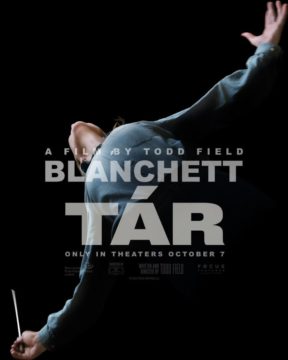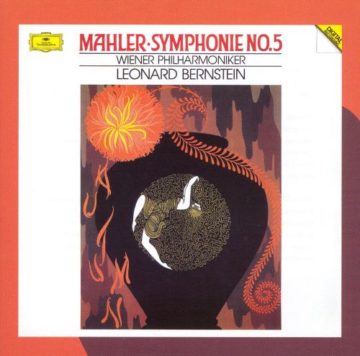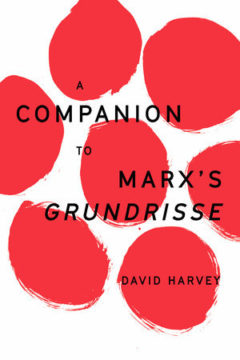by Chris Horner

A look forward, and backward, to some ‘cultural stuff’ for the coming year, old and new things worth seeing, hearing or reading. Here we go:
Tár.
Unless you have been cut off from all media in the last few months, you probably will have heard of this new movie from Todd Fields. Cate Blanchett plays Lydia Tár, star conductor in the Berlin Philharmonic. She has a lifestyle of the celebrity conductor and as wee see her prepare to record Mahler’s 5th symphony we also see her life beginning to fall apart. It turns out she is not immune to the temptations of power that go with the role of Maestro.
 Blanchett’s performance has been much praised, and it is indeed a tremendous thing: she must be near the head of the queue for an Oscar this year. It’s a great performance in a genuinely worthwhile and absorbing film. I don’t think it really expands our understanding of the themes it features: power and the exploitation young hopefuls by the (seemingly) all powerful star, the question of great art and flawed artists and so on, but it’s possible to come out of the movie thinking that it has. Blanchett’s performance has a lot to do with that. So a great performance in a very good rather than great film (assuming such categories can really be employed so neatly).
Blanchett’s performance has been much praised, and it is indeed a tremendous thing: she must be near the head of the queue for an Oscar this year. It’s a great performance in a genuinely worthwhile and absorbing film. I don’t think it really expands our understanding of the themes it features: power and the exploitation young hopefuls by the (seemingly) all powerful star, the question of great art and flawed artists and so on, but it’s possible to come out of the movie thinking that it has. Blanchett’s performance has a lot to do with that. So a great performance in a very good rather than great film (assuming such categories can really be employed so neatly).
 Music: Mahler: Symphony no 5. If the film leaves you wanting to explore the music Lydia Tár is so obsessed with, then a recording of the great, central symphony of Mahler might be something to explore. I love Leonard Bernstein’s recording with the Vienna Philharmonic, Abbado’s in Chicago and Karajan’s with the Berlin Philharmonic. All these are with conductors from the age of the great maestro-star-autocrat star, and all are men! Another great performance of that symphony is that of James Levine in Philadelphia.
Music: Mahler: Symphony no 5. If the film leaves you wanting to explore the music Lydia Tár is so obsessed with, then a recording of the great, central symphony of Mahler might be something to explore. I love Leonard Bernstein’s recording with the Vienna Philharmonic, Abbado’s in Chicago and Karajan’s with the Berlin Philharmonic. All these are with conductors from the age of the great maestro-star-autocrat star, and all are men! Another great performance of that symphony is that of James Levine in Philadelphia.
 You may remember that he was disgraced in circumstances that Tár brings to mind. Mahler’s music, though, is not to be missed, however you choose to hear it. Moving from dark and funereal to great sunbursts of joy, it is a symphony that is an event; not something to just play as background, but to really engage with. Why do so many thoughtful people, readers of hard books and viewers of complex visual art not listen to classical music? Mahler is more popular than ever among those who do, and might be a great place to start listening if you want to explore.
You may remember that he was disgraced in circumstances that Tár brings to mind. Mahler’s music, though, is not to be missed, however you choose to hear it. Moving from dark and funereal to great sunbursts of joy, it is a symphony that is an event; not something to just play as background, but to really engage with. Why do so many thoughtful people, readers of hard books and viewers of complex visual art not listen to classical music? Mahler is more popular than ever among those who do, and might be a great place to start listening if you want to explore.
 Non fiction: The Grundrisse: a guide, by David Harvey (Verso). Harvey has produced the very widely read guide to Marx’s Capital and in the new year we will get his guide to maybe the most thought provoking text that Marx never published: The Grundrisse. It comprises Marx’s notes written around 1857-1858, as he turned to the study of contemporary capitalism, which led eventually to his magnum opus Capital (vol1,1867) The notes were not intended for publication, but rather were written as a preliminary outline for his larger project of critiquing political economy. In the Grundrisse, Marx lays out many of his key concepts, including his revision to the ‘labour theory of value’, (which I would argue is less a continuation than a criticism of that theory), the concept of surplus value, and the idea of the ‘fetishism of commodities.’ It’s a critique of political economy and a development of historical materialism. The Grundrisse is a key work in Marx’s developing theory and it has some passages of startling vividness and imaginative daring that in some ways outdoes Capital itself.
Non fiction: The Grundrisse: a guide, by David Harvey (Verso). Harvey has produced the very widely read guide to Marx’s Capital and in the new year we will get his guide to maybe the most thought provoking text that Marx never published: The Grundrisse. It comprises Marx’s notes written around 1857-1858, as he turned to the study of contemporary capitalism, which led eventually to his magnum opus Capital (vol1,1867) The notes were not intended for publication, but rather were written as a preliminary outline for his larger project of critiquing political economy. In the Grundrisse, Marx lays out many of his key concepts, including his revision to the ‘labour theory of value’, (which I would argue is less a continuation than a criticism of that theory), the concept of surplus value, and the idea of the ‘fetishism of commodities.’ It’s a critique of political economy and a development of historical materialism. The Grundrisse is a key work in Marx’s developing theory and it has some passages of startling vividness and imaginative daring that in some ways outdoes Capital itself.
For instance, there’s his notion of the ‘general intellect’ in the ‘fragment on machines’ section: on the collective intellectual abilities and knowledge of society. Marx thought that as capitalism developed, the ‘general intellect’ would become increasingly important: the application of technology and knowledge to the production process would mean value would come less from individual labour, but rather from the collective knowledge and abilities of society. There is a foreshadowing of the reign of ‘immaterial labour’ where intellectual and communicative abilities would be more important than physical labour. So the importance of knowledge and technology will increase, according to Marx: a shift towards a knowledge-based society. The relevance to the current debate on the effects of automation, artificial intelligence and the gig economy on the labour market and the future of work are obvious.
If Harvey can illuminate what Marx has to say in these pages with the same lucidity and intelligence he displayed in his previous guides, we are going to be very much in his debt. It’s due in early February 2023.
 Journalism: Goodbye United Kingdom: Descent Into Chaos 2015 – 2022 by Josh White. If you have any interest in the new and often strange things that have been happening to the UK recently, of which Brexit is only the most well known but by no means the most startling, then this ‘as it happened’ journalism by White, now collected into an ebook, is a good place to start. White writes with verve and a real sense of what matters. If it happened, he wrote about it. Highly recommended. (Downloadable from Barnes and Noble, Amazon etc)
Journalism: Goodbye United Kingdom: Descent Into Chaos 2015 – 2022 by Josh White. If you have any interest in the new and often strange things that have been happening to the UK recently, of which Brexit is only the most well known but by no means the most startling, then this ‘as it happened’ journalism by White, now collected into an ebook, is a good place to start. White writes with verve and a real sense of what matters. If it happened, he wrote about it. Highly recommended. (Downloadable from Barnes and Noble, Amazon etc)
Television: Severance, Series 2 (Apple +). Widely expected to appear later this year, fingers crossed, the absorbing dystopian world of Lumen, where workers have their memories tampered with in order to cut their work self off from their it non work self, ought to be returning soon. I wrote about Series 1 here last month, so I won’t repeat myself on the excellence of this production. If you haven’t seen Series 1, I’d recommend doing so. It’s thoughtful, if chilling, television.

